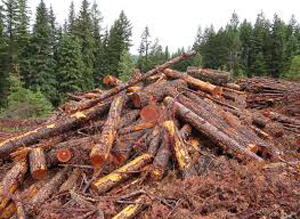Wednesday, April 3, 2019 ~ BC
~ West Shore Voice News
Decked timber and logging debris in the Shovel Lake Wildfire made firefighting more difficult, according to a complaint investigation report.
A member of a wildfire response team complained to the board in 2018 after seeing large amounts of logs and debris on the ground. He was concerned the material contributed to the spread and severity of the fire.
The investigation looked at over a dozen cutblocks within the perimeter of the fire to determine whether the forest licensees had met legal requirements to abate fire hazards. The investigation found that the licensees had either abated the hazards as required or the time period allowed for hazard abatement had not yet passed. In some cases, the licensees were still actively logging when the fire swept through, so the decked logs and debris were consumed by the fire before the licensees had a chance to deal with the hazard.
“We found that the licensees did what they were required to do,” said Kevin Kriese, chair of the Forest Practices Board. “In areas like this with very high fuel levels caused by mountain pine beetle, logging will reduce the risk of fire over the long term. However, the investigation found that current requirements could be improved by reducing the time before abatement is required and reducing the amount of fuel that can be left behind.
“The BC Wildfire Service has established a working group to look at the current hazard abatement strategy. The board is recommending that review include the length of time before the hazard has to be treated and the amount of fuels permitted to be left on-site after abatement. The review should consider other values, including smoke, biodiversity, carbon sequestration and silviculture requirements.”
The Forest Practices Board is B.C.’s independent watchdog for sound forest and range practices, reporting its findings and recommendations directly to the public and government. The board investigates public complaints about forest and range practices on public lands and appropriateness of government enforcement. It can also make recommendations for improvement to practices and legislation.



